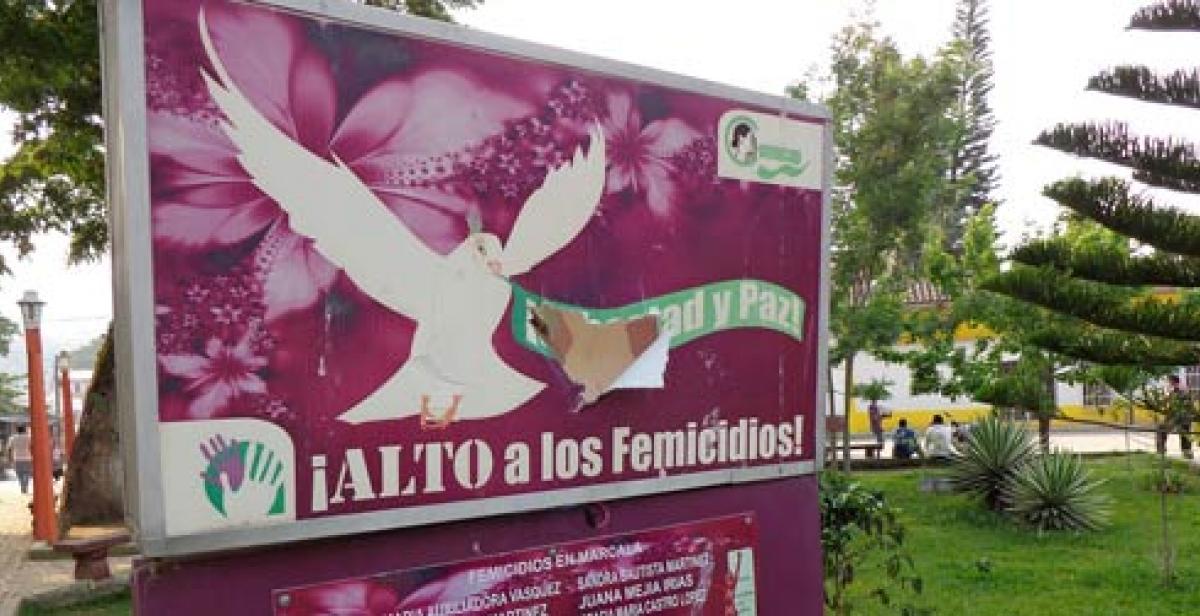On our first day in Marcala, the small town bustles with the energy of the schoolchildren who dart amongst us and the friendliness of the locals who wish us a good day as we pass. But amongst the liveliness of this modest town, there is one thing that is particularly prominent to us – a solitary sign, situated in the park which marks the centre of the town, listing the murders of six women in Marcala. These murders are categorised as femicides, because they have been motivated by misogynist attitudes.

I am reminded of the bravery of women like Zoila Madrid, who visited us during our week of in-country orientation. As a lecturer at the National Autonomous University of Honduras she specialises in gender and is a vocal spokesperson for the feminist movement, fighting against domestic abuse, gender inequality and femicide. It is all too essential that women such as Zoila exist and continue to fight. In 2012, 606 women are recorded to have been violently murdered, an increase of 346% from 2005. According to Zoila’s presentation, only 6% of femicides are investigated, with even fewer leading to a conviction. And, whilst femicides are often considered to be the most extreme form of gender abuse, it must not be forgotten that in the ‘machista’ culture of Honduras women are often subjected to abuse by partners and family members, sexual harassment and oppression.
Throughout Honduras organisations exist which fight for the rights of women and support them to live in a culture which oppresses and endangers them. In Marcala alone these cooperatives give the help and support needed for these women to empower themselves. One such cooperative is COOMUPL (Cooperativa Mixta Unidas para Progresar Limitada), with whom we, as volunteers, will be working with over the coming weeks.
COOMUPL first began in 1991 when 15 women who owned their own land, but had no opportunity to raise the funds needed for necessary improvements, came together to pool their resources. In 1994 this small group became a communal bank for all, and in 1996 it established itself as COOMUPL, a fully-fledged co-operative.
The co-operative provides opportunities to women and children in the community by offering loans and credit at a low rate of interest. Its members benefit from the far greater purchasing power of the co-operative and are offered assistance in various topics such as accountancy, first aid and irrigation.
The organisation is currently made up of 8000 members and prides itself on enabling women to take control of their own work, finances and development – in turn handing them the means to take control over their own lives.
Written by Emma Justice
Photos by Emma Justice and Katie Sims



